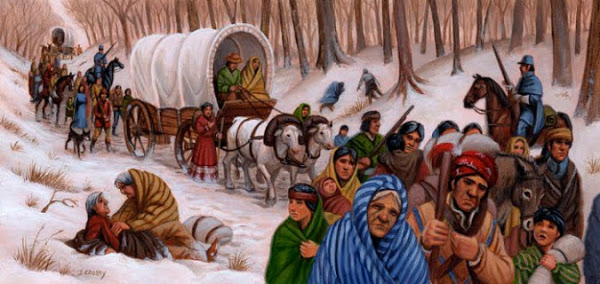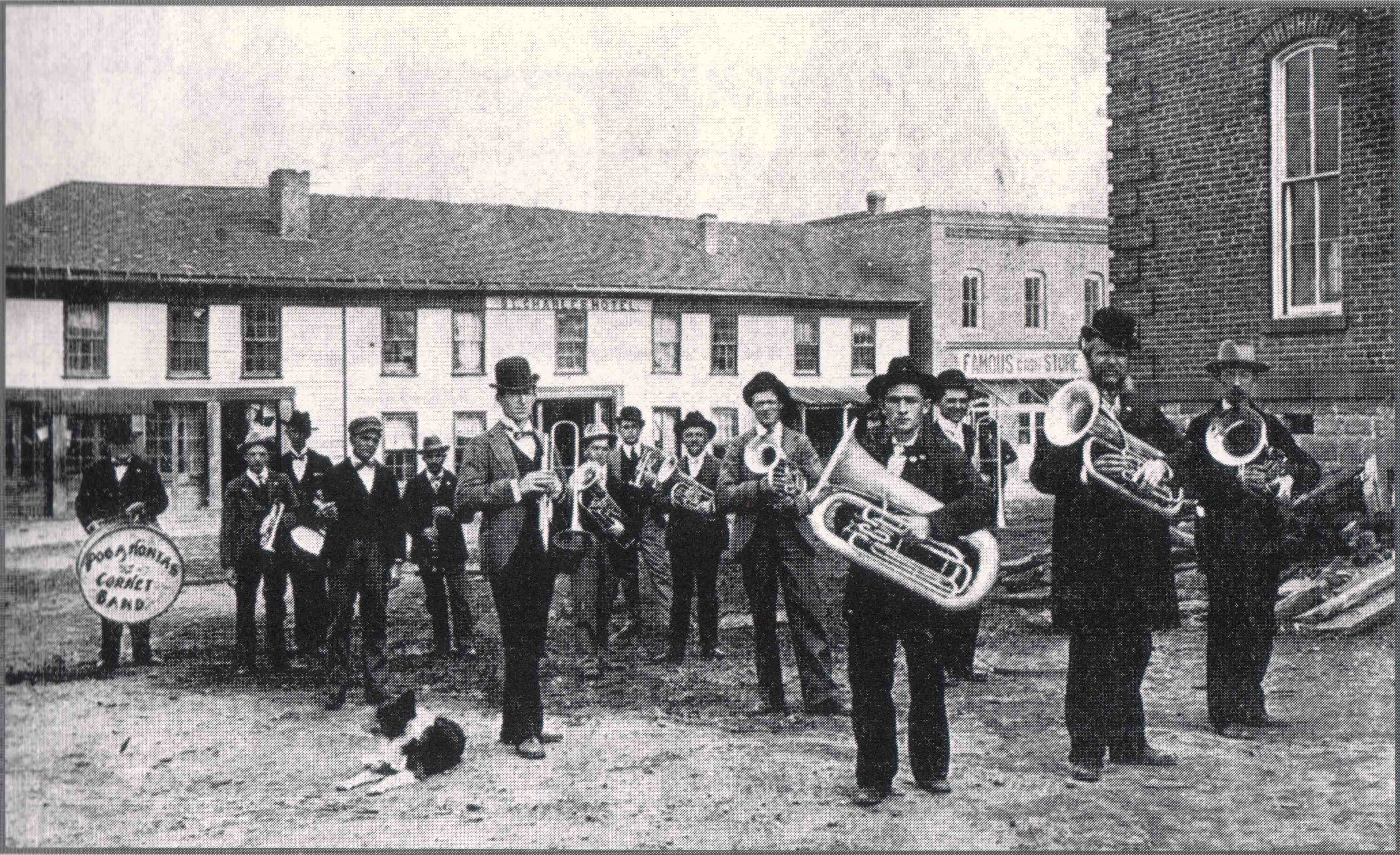Trail of Tears In Randolph County: 175th Anniversary
In November, 1838, twelve hundred Cherokee and Creek Indians left northern Alabama on a forced march to Oklahoma, where the government was forcibly relocating them. They crossed Tennessee into Kentucky in an unusually cold winter. They then crossed the Mississippi into Missouri and took the Old Military Road (Southwest Trail) into Arkansas.
They crossed into Arkansas on December 9, 1838, by fording the Current River at a spot still called Indian Ford, approximately 500 yards upstream from Pitman’s Ferry. They would have to ford (swim across) four of Randolph County’s five rivers in the cold of December.
We have eye witness accounts of their burying eight of their party near the community of Supply. An eyewitness account of the party when they camped at Foster’s Ford on the Fourche River and a newspaper account of their overnight stay at Old Jackson attest to the pitiful condition of the travelers and the great emotions they caused in any who witnessed their plight.
The Benge Route of the Trail of Tears, which runs from extreme northeast Randolph County to just south of Imboden, is now part of the National Park Service’s National Trail system (to be marked with signage later this year) and is one of three Arkansas Heritage trails that run through historic Randolph County.


